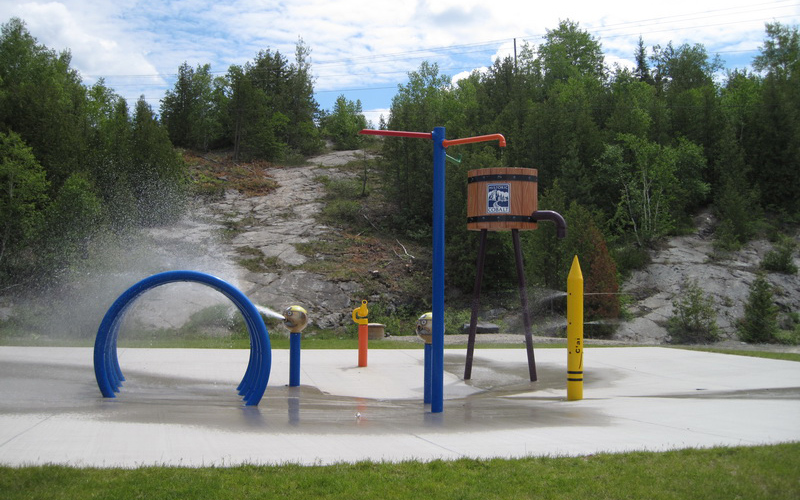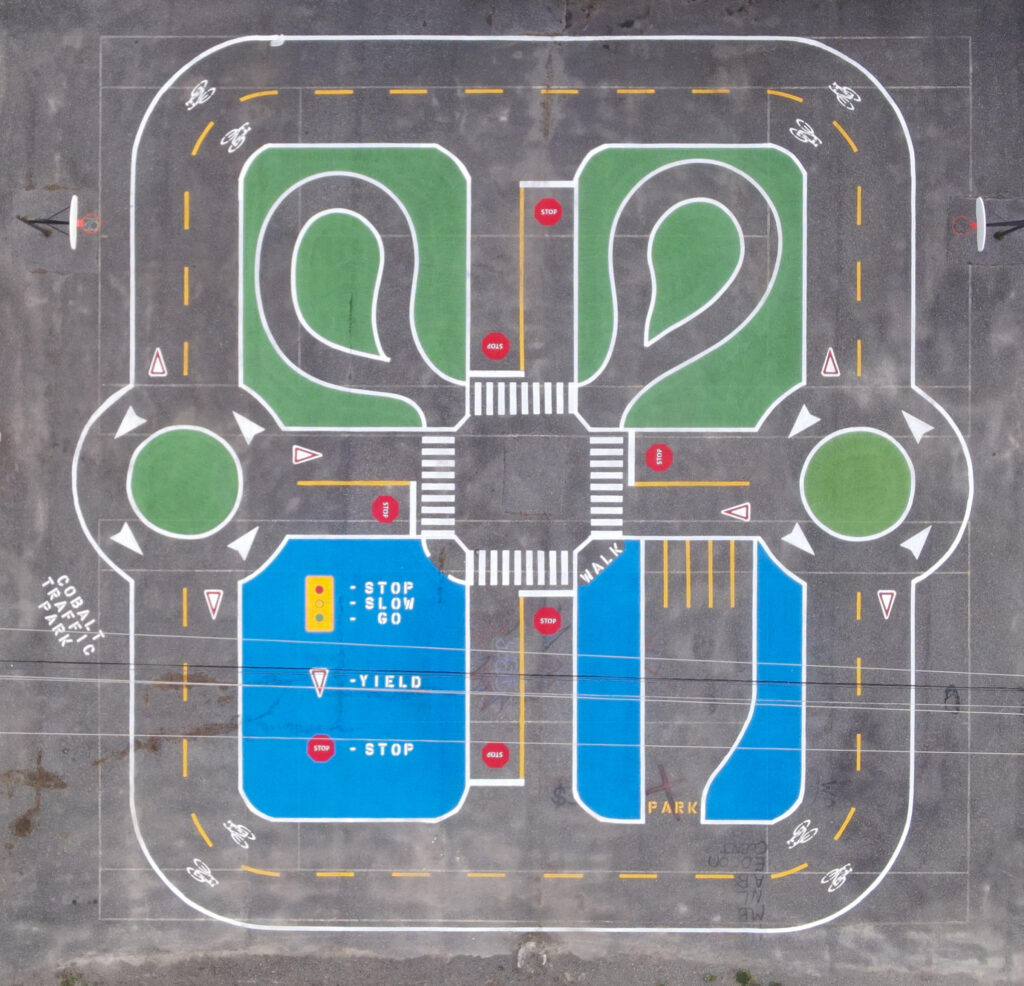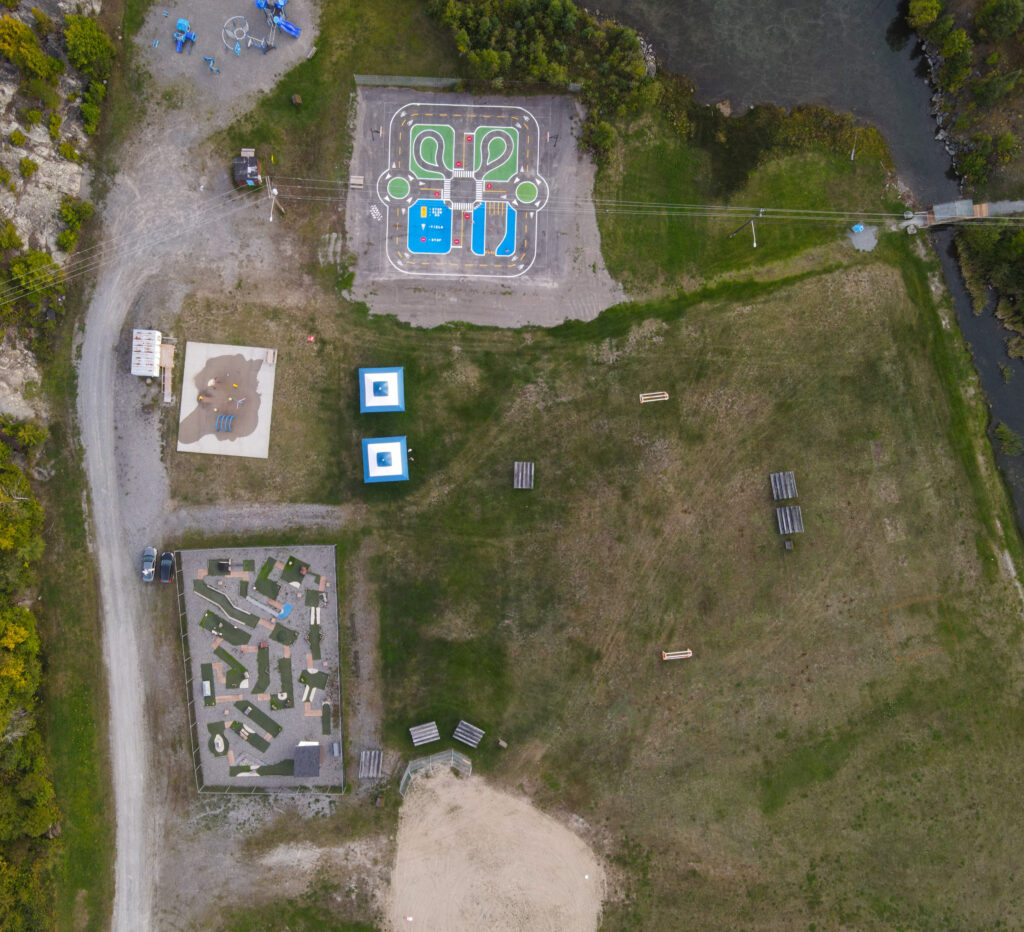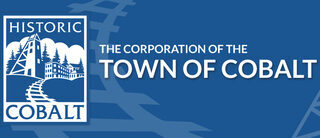Cobalt has had a number of citizens whose lives have been commemorated through the naming of memorial parks. They are situated throughout the community and contribute to our historic past.
If you wish to learn more in regards to the Town of Cobalt’s memorial parks, please give us a call at (705) 679-8877 or send us an email and we will be happy to help.
Bruce Lonsdale
(1949-1982)
Situated beside the railway station, this park is in memory of Bruce Lonsdale, who served as Mayor of the Town of Cobalt from 1976 to 1979. He led the town through its recovery from a disastrous fire in 1977 which ravaged the north end of the community destroying 123 homes and several businesses.
He was a member of the Liberal Party of Canada and was elected to represent the riding of Temiskaming in the Federal House of Commons in 1980.
Lonsdale passed away in a tragic automobile accident on January 22, 1982 on his way home from an event. He was 32 years old.
Dr. Douglas Pollard
(1925-2009)
He served his country during World War II at Gander, Newfoundland with the Royal Canadian Air Force where he worked as an Armourer and Leading Air Craftsman. He lived in Coleman Township where he owned and operated the Highway Book Shop since 1957. Dr Pollard received a Bachelor of Arts Degree in Psychology from McGill University, a PHD in Psychology from Bernadean University in Nevada and in 1980 an Honorary Doctorate of Letters from Nipissing University in North Bay.
In December 2008, the author, publisher was given Canada’s highest civilian honour, the Order of Canada for his contributions as a businessman, publisher and volunteer who, for more than 50 years, has championed the cultural and historical riches of Northern Ontario.
The Poetry Park, situated at the site of the town’s original public school, is a quiet retreat where one can sit and enjoy a nice quiet read. A fitting tribute.
Major Edward J. Holland
(1878-1948)
Major Holland was born in Ottawa and served with The Royal Canadian Dragoons. He received the Victoria Cross for his actions during the Second Boer War. The Victoria Cross is a prestigious commendation for military service and very few have been awarded.
After he returned to Canada, Major Holland received a commission as an officer in his old Militia unit, the 5th Princess Louise Dragoon Guards. During the First World War he commanded a Motor Machine Gun Battery, serving in France with the Canadian Expeditionary Force for one year. Holland relocated to Cobalt some time after the war to become the postmaster. He resided in the community until his death in June 1948.
The park named in his honour is situated in the town square. It is home to the cenotaph and fittingly the Remembrance Day Ceremonies.
Jake Koza
(1916-1997)
Born in Toronto he arrived in Cobalt a toddler at a year and a half. He lived in Cobalt all his life working in the family business, Northern Metal Company. In the 1950’s he branched out on his own to form Jack Koza Limited which reclaimed and refurbished mining machinery for resale.
He also built a number of mills in Cobalt and Coleman Township. He was a well known mining promoter and active member of the community even as a young man. He was the youngest person ever elected to council, a young politician at the age of 21 in 1939.
The mining fraternity is a closely knit group and he would run into people he knew throughout the world. But he always came home to Cobalt, the town he really loved.
The Teck Prospect Park has been developed through a generous donation from Teck Corporation in honour of Dr. Norman B. Keevil’s contribution to Canadian Mining and Cobalt’s mining legacy.
The park is fun for the whole family. Visitors can enjoy a beautiful green space that includes two soccer fields, the Ken Buffam Memorial Baseball Field, and a splash pad. The Teck Cominco Splash Pad opens at 10AM and closes at 8PM daily. The seasonal operation typically runs from June to Labour Day, weather permitting.
The area is surrounded by beautiful Cobalt Lake and the Keevil Walking Trail. The children’s playground area rounds out this family oriented facility.

Cobalt Traffic Park




Willett Green Miller
(1866-1925)
Willett Green Miller graduated in geology from the University of Toronto in 1890. In 1902, Miller became the first provincial geologist for the province of Ontario, and it was in this capacity that he did his greatest works.
He was the first to recognize the importance of the discoveries in Cobalt, at a time when no precious metals were being mined in Northern Ontario. Subsequently, his knowledge of Northern Ontario geology guided the development of the gold fields of Porcupine, Kirkland Lake, and other important mining areas discovered during the early exploration of northern Ontario.
In the fall of 1926, a memorial tablet was unveiled at Cobalt, dedicated to Willet Green Miller, “provincial geologist of Ontario, who gave to Cobalt its name and place among the great mining camps of the world; who read the secret of the rocks and opened the portal for the outpouring of their wonderful riches”. A portrait of Miller, commissioned by the “mining men of Ontario”, still hangs today in the Legislative Building in Ontario. And in Sudbury, a modern research facility bears his name.
Dr. William Henry Drummond
(1854-1907)
An immigrant to Montreal from Ireland, Drummond graduated with an M.D. from McGill University in 1884 and started practising in the eastern townships (along the St. Lawrence River) to which his dialect poems so often refer. In 1888 he moved to Montreal. It was ten years later, well after his marriage to May Isobel Harvey, that Drummond published his first book of poetry, The Habitant (1897).
In 1905 Drummond closed his Montreal medical practice. He began spending extensive time in Cobalt, Ontario, where he and his brothers had acquired interest in silver mines. He served for a year as the town’s first doctor, and was vice-president of Drummond Silver Mine. He continued to write poetry of life in the north. In the early spring of 1907 Drummond returned to Montreal, and took his wife on a trip to New York and Washington. By April, though, he had returned to Cobalt, where he died of a cerebral hemorrhage on the morning of April 6.
Probably no other Canadian poet has been so widely mourned. His funeral was held in Montreal and he was buried in that city’s Mount Royal Cemetery. The Drummond Cairn, which had been all that was left of their home out on the property, has been relocated to the side of the Cobalt Public Library. It serves as the main venue for the Spring Pulse Poetry Festival. The Henry Drummond Poetry Contest has run every year since 1970, attracting participants from across Canada.
For more information on the poetry festival: www.springpulsepoetryfestival.com
